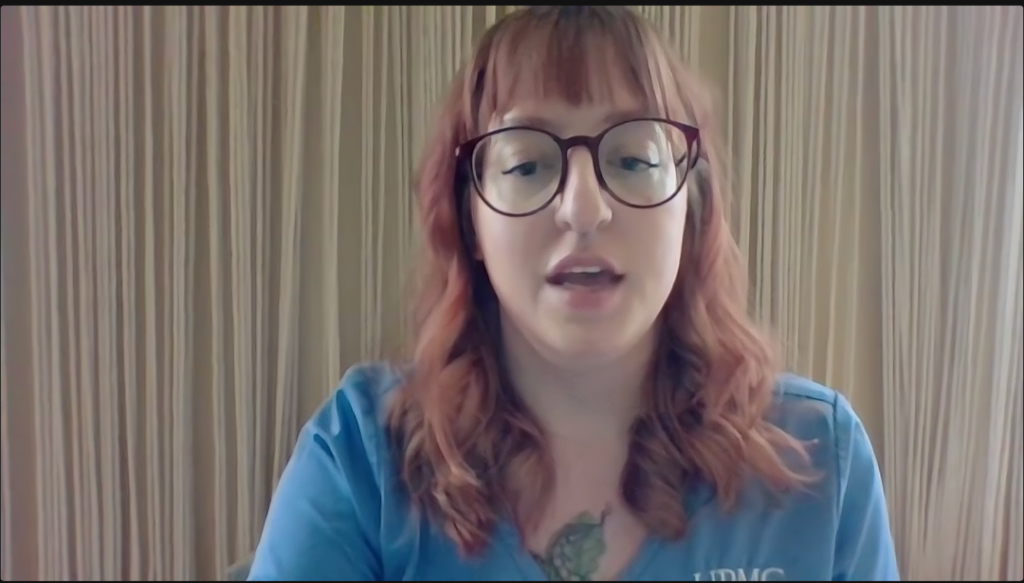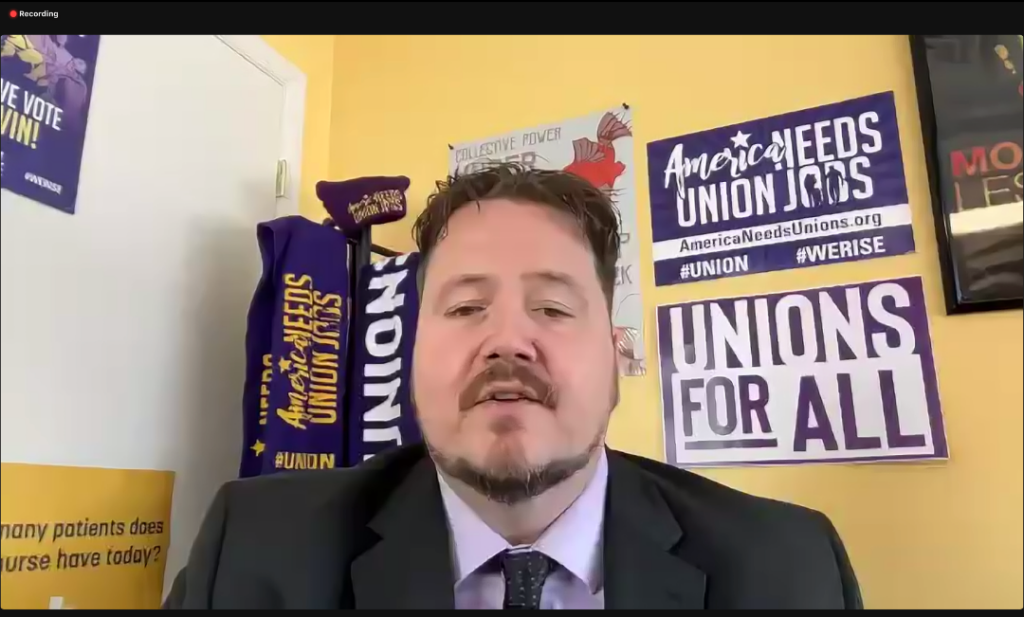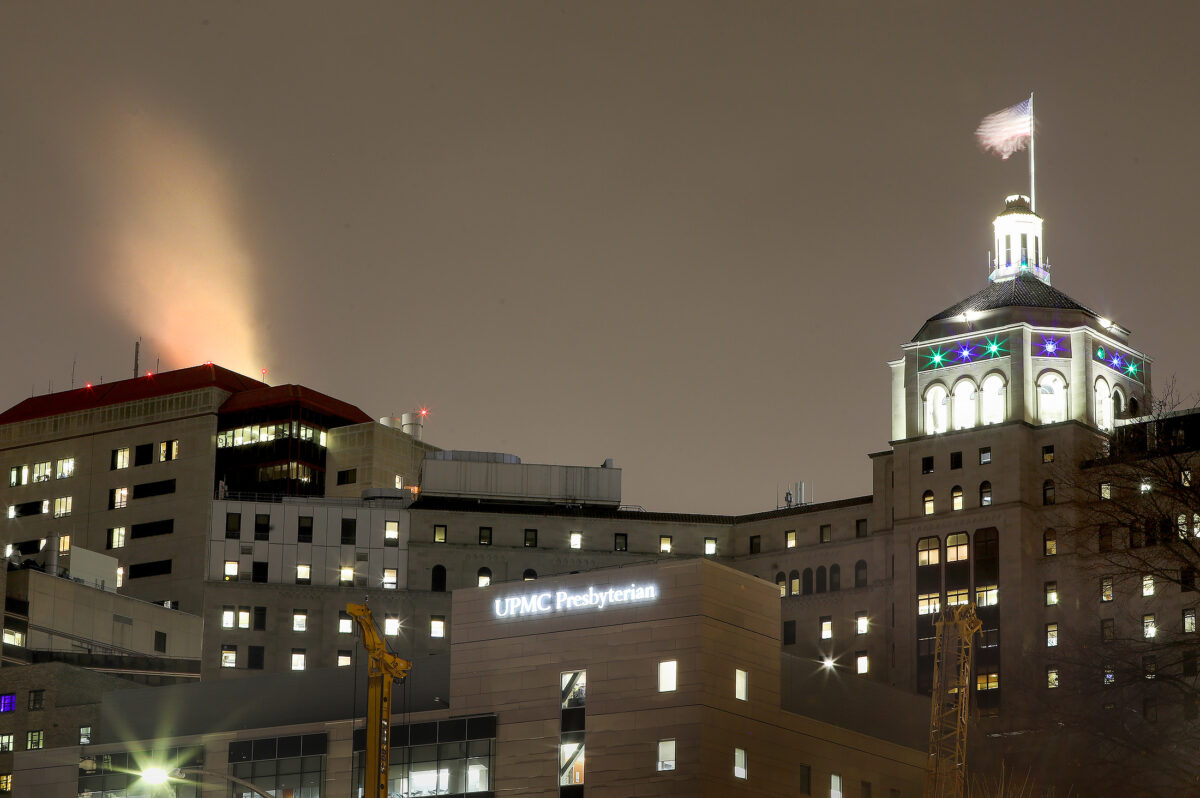In a news conference on Thursday, SEIU Healthcare Pennsylvania unveiled an antitrust complaint with the Department of Justice against UPMC. With the support of U.S. Rep. Summer Lee, D-Swissvale, the SEIU advocated for federal regulation of UPMC’s wages and practices.
A coalition of unions, led by the SEIU, filed the complaint, which alleges that UPMC has pursued “anticompetitive conduct” in its rise to becoming the region’s leading health care provider. The complaint details the harms allegedly brought to workers as a result of this consolidation, including wage suppression, heavy workloads and restrictions on the ability of workers to switch jobs.
“UPMC acquired dominant market power and unfairly used that power in ways that harmed their patients and workers,” SEIU Healthcare Pennsylvania President Matt Yarnell said.
UPMC is the largest private-sector employer in Pennsylvania, employing 92,000 workers in 40 hospitals and 800 outpatient facilities, with an annual revenue of $26 billion.
UPMC, according to the complaint, is operating as a monopsony, meaning it unfairly controls the market as a buyer of goods, services or, in this case, labor. Under the control of a monopsony, industry workers have few options to earn higher wages or better conditions, with one company controlling the market.

Two UPMC employees spoke at the news conference, which was held virtually on Zoom. Jodi Faltin, a UPMC registered nurse, and Nila Payton, an administrative assistant in pathology, highlighted the fear of termination that has deterred workers from speaking up. UPMC’s monopsony means that terminated workers have few other options in the industry.
“My entire career has been with UPMC because of the clear stronghold they have on our state,” Faltin said. “When three-fourths of hospital jobs are with UPMC, options are limited.”
Payton, a UPMC employee for nearly two decades, said she makes $20 an hour, which is below what is considered a living wage in her area based on the cost of living. She combed the market for other jobs in the industry but found no other viable options. As a mother, she can’t afford to work part time or at night.
“There’s nowhere else to work if you’re a health care worker in southwest Pennsylvania,” Payton said.
For workers such as Payton, UPMC’s mandate that employees use UPMC’s own health care coverage has resulted in rising medical debt. Payton said that she has had to “skip or postpone treatment” due to prohibitive costs.

The complaint says that UPMC leverages its power through “draconian” restrictions on mobility and by “blacklisting” workers who quit. The complaint also conducted a study that links increased dominance of UPMC hospitals with lower wages and lesser conditions.
UPMC’s chief communications officer, Paul Wood, denied that the company prohibited the rehiring of employees who left a UPMC facility, and highlighted multiple steps that UPMC has taken to improve conditions. Wood noted that the health system is moving to an $18 per hour salary minimum for nonunion workers by 2025, and that UPMC was the first health care organization in Pennsylvania to offer paid parental leave. The company added health reimbursement arrangements this year for some employees to offset health care costs.
“UPMC is among the best places to work in all the regions we serve throughout [Pennsylvania, New York and Maryland] due to our wages and above-industry employee benefits,” Wood said.
Lee, a progressive Democrat, called on the DOJ to take action and for UPMC to be held accountable.
“We’re no stranger to these robber barons that exploit workers,” Lee said. “This is no way that we should be treating our health care heroes.”
The complaint detailed the “wage penalties” incurred by UPMC workers, with lower-wage jobs affected the most. The lack of competition for jobs in the industry, a result of UPMC’s “voracious” acquisition of hospitals, allows them to keep wages low, the unions write.
In addition to wages, the unions say that UPMC consolidation hurt workplace conditions and hospital practices, problems exacerbated by the pandemic and general shortages in health care professionals. They describe situations in which those employees worked longer hours for UPMC than they did for other companies, and listed examples of UPMC hospitals that shuttered or suffered cuts.
“Our staffing crisis is a preexisting condition, and UPMC refuses to cover it,” Faltin said. “There’s rarely a shift where we don’t worry about staffing.”
“It’s inevitable that patients will bear the brunt of consequences,” Lee said.
This complaint, according to Yarnell, is “groundbreaking” in its nature, arguing that a major health care employer is leveraging its monopoly to harm workers. But it’s not the first time that UPMC has faced criticism for anti-competitive practices. A January report from the American Economic Liberties Project, convened by Lee and and state Rep. Sara Innamorato, D-Lawrenceville, who represents District 21, raised similar issues and proposed federal and state antitrust legislation.
The DOJ does not have a deadline to make a decision on the antitrust complaint. The next step, should the DOJ side with the union coalition, would be to take legal action against UPMC. Yarnell hopes that the DOJ will investigate and “halt abuses,” but investigations tend to take a “fair” amount of time, according to Marka Peterson, the legal director of the Strategic Organizing Center.
Federal regulation, Peterson said, is the most prudent method to force UPMC to improve its practices and treat workers better.
“Individual antitrust lawsuits are expensive and difficult to win,” Peterson said.
The focus has shifted to local leaders such Lee, who hopes that others will follow.
“It’s imperative that our local leaders are here to call to task the UPMC leaders and the monopoly power they have.
“The crisis demands we fight hard … to give power back to the people,” Lee said.

Harrison, a rising senior at Denison University, is a Union Progress summer intern. Email him at hhamm@unionprogress.com.



